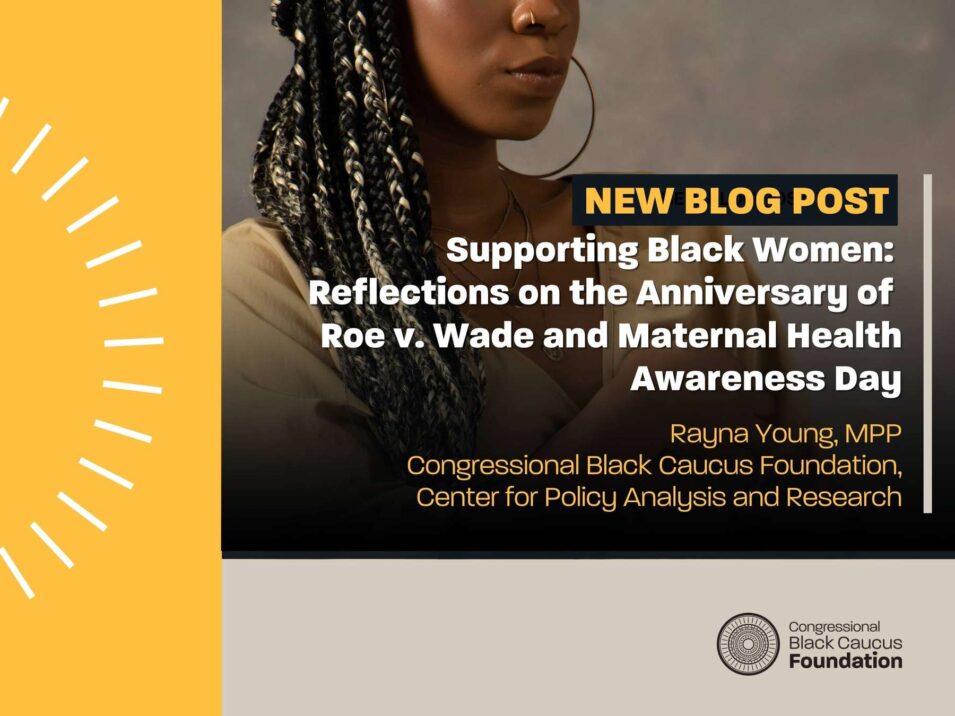By Rayna Young, MPP
This week highlights two significant milestones in women’s health: the 52nd anniversary of Roe v. Wade on January 22 and Maternal Health Awareness Day on January 23. Roe v. Wade famously enshrined federal protections for abortion rights, but the Supreme Court overturned those protections in the Dobbs v. Jackson Women’s Health Clinic case. The Dobbs decision, which became law in June 2022, triggered restrictive abortion bans throughout the United States. Black women are already three times more likely to die from complications surrounding pregnancy and childbirth than white women, and the Dobbs decision has only exacerbated this problem. This past September, ProPublica uncovered the heartbreaking stories of Candi Miller and Amber Nicole Thurman, two Black women who lost their lives due to Georgia’s abortion bans. Their deaths, which could have been prevented, occurred because the state’s restrictions denied them access to life-saving care during their pregnancies. These tragedies are a painful reminder of the urgent need to support and advocate for the well-being and rights of pregnant individuals.
At the 53rd Annual Legislative Conference, the Center for Policy Analysis and Research (CPAR) at the Congressional Black Caucus Foundation hosted a Health Equity session that brought these issues to the forefront. The session, “Empowering Black Fathers to be Allies for Black Maternal Health,” featured scholars, practitioners, and advocates who provided vital information on how Black men can engage in the pregnancy journey with their partners and support Black women and children. Despite negative stereotypes about absentee Black fathers, the Centers for Disease Control and Prevention found that Black fathers are more involved in their children’s daily lives compared to fathers from other racial and ethnic groups. While the parent-child relationship is important, it is also important that Black men are passionate advocates for the expectant mothers in their lives, in doctor’s appointments, and at the ballot box.
To improve maternal health outcomes for Black women, we must elect leaders who will pass legislation to make healthcare more accessible, enable doctors to provide the full spectrum of reproductive care to patients in need, and empower fathers to be informed and supportive partners before, during, and after the birthing process. As we recognize Maternal Health Awareness Day and the anniversary of Roe v. Wade, we must acknowledge that limiting access to abortion puts maternal health in jeopardy.
Join us in recommitting to the fight for reproductive rights and the protection of Black women by taking action to improve Black maternal health. Watch our ALC53 panel, “Empowering Black Fathers to be Allies for Black Maternal Health,” here to learn how fathers can support this critical issue. Explore the ALC53 Take Action Guide for practical resources and strategies, and support organizations like 4Kira4Moms, which is dedicated to eradicating maternal mortality through education, coalition building, and legislative advocacy. Together, we can create a future where every Black woman and family thrives.
